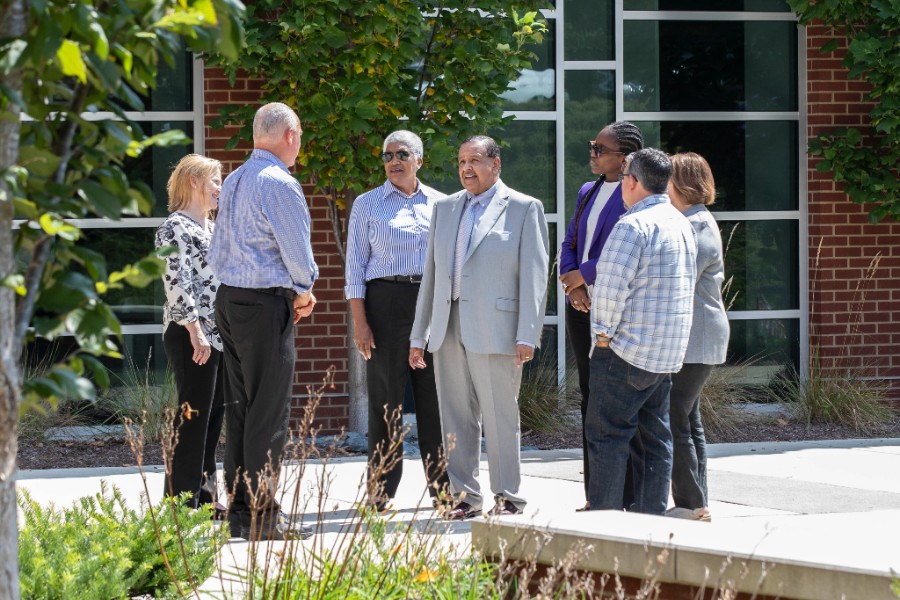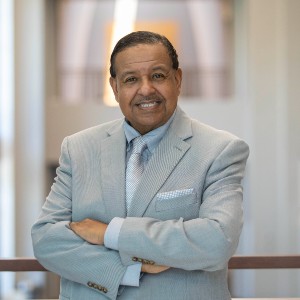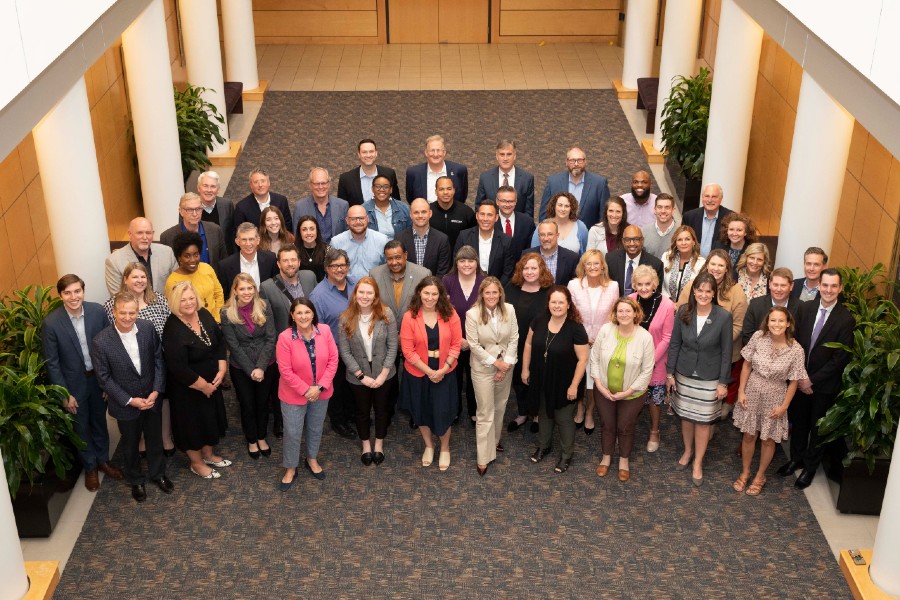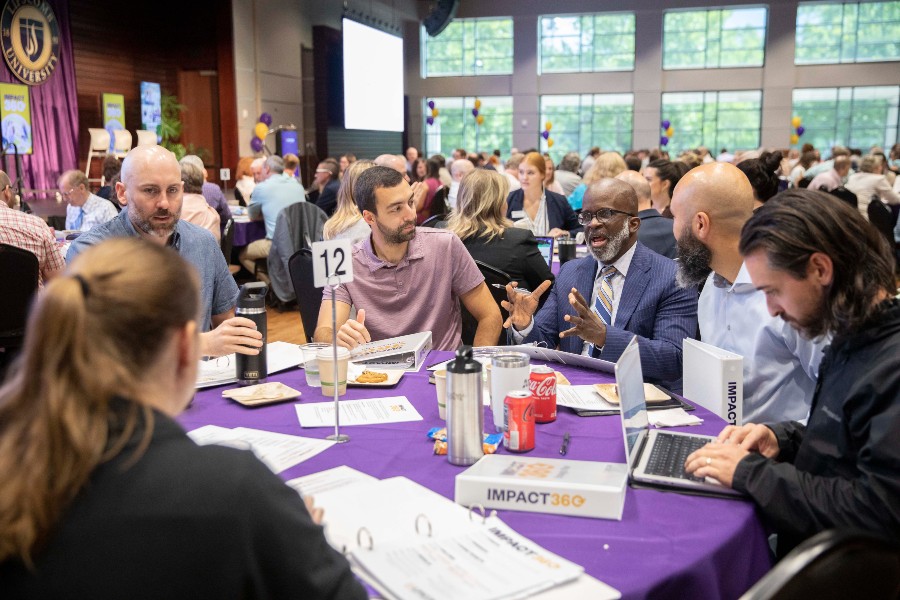Belonging is key to unlocking the power of a diverse culture
Dr. William Turner shares how Impact 360 plan takes strategic approach to building a culture of diversity.
By William Turner |


The 2021-2022 school year was a year of change, but it was a year of strategic change.
With new president Dr. Candice McQueen on campus, the university began a new strategic approach to addressing its future, taking a 360° panoramic view of who Lipscomb is today and where it should be headed in the future.
Building a culture of diversity, equity and belonging where people thrive as image-bearers of God emerged as one of the top priorities of the Lipscomb community. That goal has now been codified into the university’s new strategic plan: Impact 360.
Diversity, equity and belonging is a central component of the new plan. We have a specific goal, Goal 4, that addresses those issues in a very direct way. As Lipscomb moves forward, we want to make sure the institution is attentive to issues of diversity and that we create a space where belonging is a central component in the life of every individual who is part of the university.
As the chair of the Goal 4 subcommittee, I led representatives on campus in a process to determine our priorities and goals, the strategies to achieve them and recommended tactics. Our committee looked at various models for how other universities approach diversity on campus, and what we realized is that we didn’t want to have the typical responsiveness. We wanted to respond as Christ would. In so doing, we began looking for terms that reflected what we saw ourselves as: thriving image-bearers for God in a Christ-centered university.
Diversity, equity and belonging are essential elements to our collective success at Lipscomb, not because of any political imperative or philosophical persuasion, but because these are central teachings of Jesus and foundational components of our Christian faith.
At Lipscomb University belonging matters. The creation of a sense of belonging for students, faculty and staff has a major impact on performance and retention. People who say they have a sense of belonging tend to feel connected to their work and to Lipscomb.
When a person can bring their authentic self to the university, they are more engaged and better able to learn and contribute.
Engagement represents the levels of enthusiasm and connection individuals have with their organization. It measures how motivated people are to put in extra effort, and it is also a sign of how committed they are to staying.

These members of the Impact 360 Steering Committee helped develop the strategic plan and its six goals throughout the 2021-2022 school year.
The Lipscomb’s Impact 360 plan was developed throughout the 2021-2022 academic year and included 1,000 students, faculty, staff, alumni and donors surveyed; 200 one-on-one and small group listening sessions; the seven-city Be A Light Tour meetings; and roundtable discussions with more than 400 faculty and staff and 125 alumni as well as 100 individuals who served on an ad hoc and steering committees.
The feedback was collected and analyzed over about a six-month period and structured around a S.O.A.R. analysis: an examination of Lipscomb’s strengths, the opportunities inherent in those strengths, what the institution should aspire to accomplish and the results those efforts might yield. This provided a foundation upon which key elements of the plan were built.
In April 2022, Lipscomb’s board of trustees unanimously approved the Impact 360 vision, mission, values and goals, including goal four: Build a culture of diversity, equity and belonging where people thrive as image-bearers of God.
Throughout the Impact 360 listening process, response to establishing and working toward Goal No. 4 has been overwhelmingly positive. In addition, the responses and trends discovered in the Race/Ethnic Campus Climate Survey administered in spring 2021 were also included in the feedback and are reflected in the strategies and tactics developed for that goal.
Impact 360 includes four strategies to working toward completing the goal:
- Strategy 1: Center policy development and actions on a theology of diversity, reconciliation and justice based on the life and ministry of Jesus and Scripture.
- Strategy 2: Increase hiring and retention of faculty, staff, and administration of historically underrepresented groups; increase the diversity of the university’s leadership in all areas.
- Strategy 3: Provide ongoing support to students, faculty, staff and administration of underrepresented groups.
- Strategy 4: Enhance the university’s engagement with alumni, churches and communities of historically underrepresented groups.

In August, the Presdent's Office rolled out the Lipscomb Impact 360 strategic plan with a working meeting and presentations.
The first steps the university is taking throughout this academic year include:
- Creating a task force to examine all of the tactics and strategies and figure out how to put them into real practice. See a list of members.
This group of eleven individuals from among the university leadership and faculty will look at current policies and procedures with respect to faculty/staff hiring, promotion, tenure and student policies impacted by diversity
This task force will look at actions that can be taken right away. For example, developing a “grow our own” strategy, drawing from Lipscomb students to incubate future Lipscomb faculty and administration from underrepresented racial groups.
- Reinvigorating Respect Leads: The Council for Diversity and Inclusion. In 2022, the council has added some new members, including a student representative. See a list of members.
The Respect Leads council will intentionally re-structure and re-form to ultimately have more responsibility and specific undertakings over the next year, including being the on-the-ground eyes and ears and research arm for the task force and university leaders.
- Exploring how diversity is represented in the Bible and lived out in Lipscomb’s history. A group of history scholars and theologians will be assembled to carry out this task.
We believe as a Christian institution that Jesus speaks very specifically about being inclusive, being diverse and providing a space that is hospitable and creates a culture and a sense of belonging. A sense of belonging is what unlocks the power and value of a diverse community. We feel that while we have made some strides, we have a long way to go. By being more intentional, focused and specific about it, we have a better chance of meeting those goals in meaningful ways.
Dr. William Lofton Turner
Distinguished Professor of Leadership and Public Policy
Special Counsel to the President for Equity, Diversity and Belonging